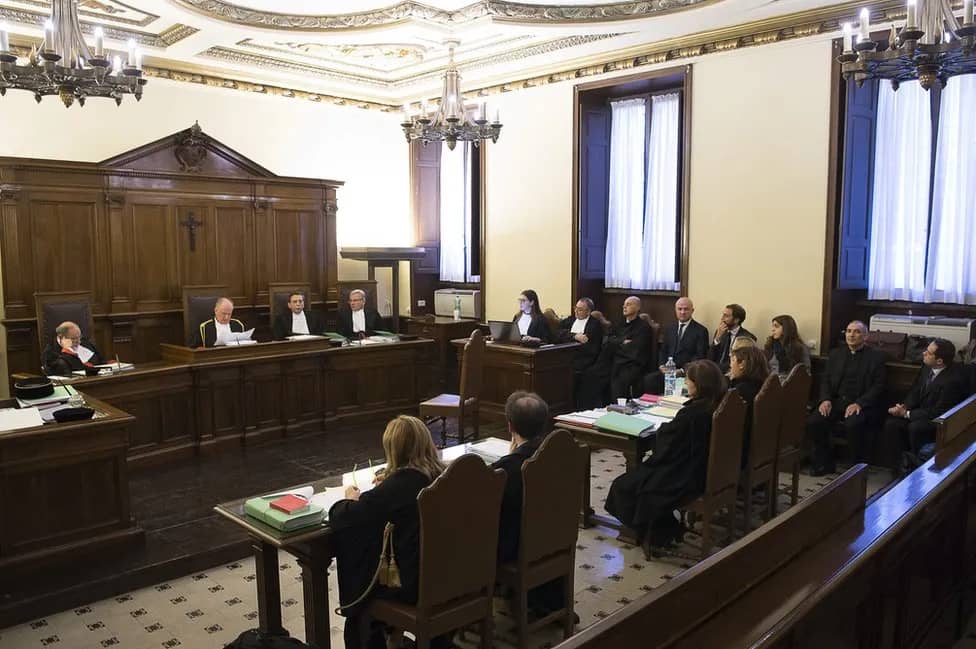ROME — According to John Paul II’s words in Bologna back in 1997, Bob Dylan was at least partially right with his famed ballad “Blowin’ in the Wind.” According to Pope Francis’s message for the upcoming season of Lent, however, Queen and Florence + The Machine both got it wrong when they say sang, “I want it all, and want it now!” and that “Too much is never enough.”
Though completely unrelated, the end of Hollywood’s award season with Sunday’s Oscar ceremony came almost as Lent begins. Rami Malek’s award for his portrayal of Queen’s late lead singer Freddy Mercury in Bohemian Rhapsody has not impressed Francis, however, who’s asking Catholics not to follow the band’s 1989 interpretation of “the cry of youth.”
Queen’s much-chanted lyrics, as well as “Too much is never enough” from Florence + The Machine, Francis wrote in his message for Lent, are expressions of a mentality that doesn’t tend towards Easter, which he called “the horizon of the Resurrection.”
Instead, he said, they yield “to untrammeled desires” that the Bible sees as “ungodly, those who act without thought for God or hope for the future.”
This is not the first time a pope has used famous rock lyrics to make a point. For instance, in 1997, while he was in Italy’s northern city of Bologna participating in a Eucharistic congress, John Paul II took the lyrics of Dylan’s famous song, answering a question posed to him a few minutes before by a young man who asked, “How many roads must a man walk down before you can call him a man?”
Dylan’s song suggests that the “answer, my friend, is blowin’ in the wind,” and the pope, who had greeted the musician earlier in the same event, concluded that, “It’s true,” adding that it’s not “in the wind that blows everything away into nothingness, but in the wind that is the breath and voice of the Spirit, the voice that calls and says, ‘Come.’”
Francis’s no-go to Queen and Florence + The Machine came in his message for Lent released by the Vatican on Tuesday.
Lent is a 40-day penitential season that for Roman Catholics will begin next week, on Ash Wednesday, and will run until Easter week, when Christians reflect on the mystery of Christ’s death and resurrection for the salvation of humanity. Easter Sunday falls on April 21 this year.
As the pope wrote, the Lenten period marks the 40 days spent by Jesus in the “desert of creation,” with the aim of returning it to that “garden of communion with God that it was before original sin.”
“Let us not allow this season of grace to pass in vain!” Francis wrote, instead summoning God’s help to turn it into a path of true conversion.
“Let us leave behind our selfishness and self-absorption and turn to Jesus’ passage [from death to life]. Let us stand beside our brothers and sisters in need, sharing our spiritual and material goods with them. In this way, by concretely welcoming Christ’s victory over sin and death into our lives, we will also radiate its transforming power to all of creation,” he wrote.
The pontiff also wrote that once God’s law, “the law of love,” is forgotten, then the “law of the strong over the weak takes over. The sin that lurks in the human heart takes the shape of greed and unbridled pursuit of comfort, lack of concern for the good of others and even of oneself.”
Forsaking God’s law, Francis wrote, leads to people exploiting God’s creation, both persons and the environment.
The Lenten season, “the path to Easter,” demands for those who follow Christ to renew their hearts through “repentance, conversion and forgiveness,” the pope said, embodying the mystery of Easter in their lives. This can be achieved by “fasting, prayer and almsgiving.”
Fasting means to learn to “change our attitude towards others and all of creation,” avoiding the temptation to “devour” everything, instead being ready to suffer for love. Prayer “teaches us to abandon idolatry and the self-sufficiency of our ego;” while almsgiving means to escape the “insanity of hoarding everything for ourselves in the illusory belief that we can secure a future that does not belong to us.”
The three, Francis wrote, allow Christians to rediscover the “joy of God’s plan” for his creation and each person.
















